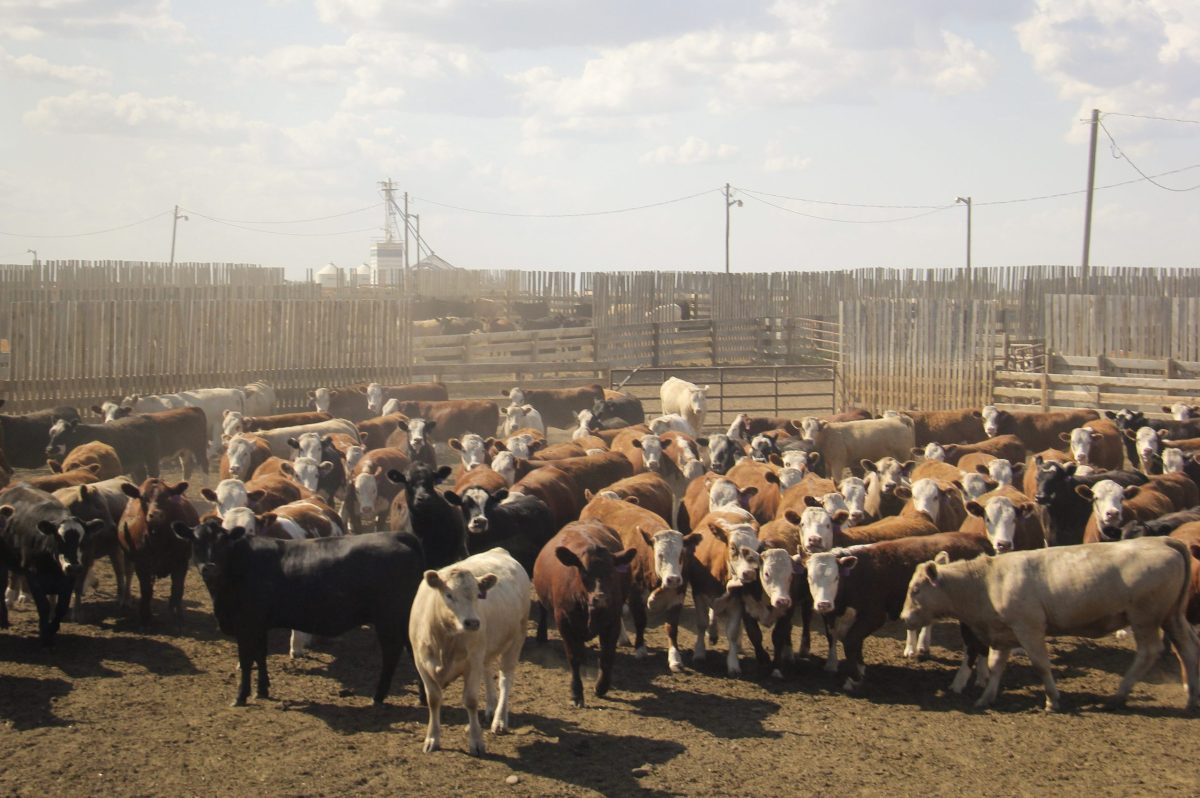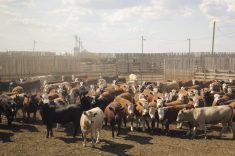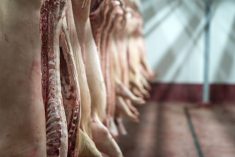Canadian cattle and hog producer groups report a “noteworthy” admission from U.S. officials on the effects of Washington’s revised country-of-origin labelling (COOL) rules, during Canada’s latest challenge against COOL at the World Trade Organization.
According to officials from the Canadian Cattlemen’s Association, during WTO compliance panel hearings on COOL held Tuesday and Wednesday in Geneva, U.S. representatives conceded that amendments to COOL — made in the wake of rulings against COOL by two other WTO bodies — have “not eliminated the detrimental impact on Canadian and Mexican livestock.”
Read Also

U.S. livestock: Cattle, hog futures rise on first WASDE since September
Chicago cattle and hog futures made modest gains on Friday after the USDA released its first World Agricultural Supply and…
“This means that the U.S. position is as long as consumer information is a legitimate objective, they can discriminate against their trading partners,” CCA president Martin Unrau said in a release Wednesday.
The U.S. Department of Agriculture released its latest version of COOL last May, after the law’s 2008 form was ruled out of order by a panel of the WTO’s Dispute Settlement Body (DSB) in 2011, and by the WTO Appellate Body in 2012, for discriminating against Canadian and Mexican livestock and meat.
Under the May revisions, in effect since late November, COOL’s labeling provisions for muscle cuts now require covered products’ labels to include even more specific information about where each production step (birth, raising, slaughter) took place. The new rule also yanked the previous rule’s allowance for commingling of muscle cuts.
The WTO DSB agreed in September to requests from Canada and Mexico for a compliance panel, to rule on whether USDA’s May changes to COOL meet Washington’s WTO obligations.
“The blatant protectionism of the U.S. position was clear throughout the hearings,” Canadian Pork Council chairman Jean-Guy Vincent said in the same release Wednesday. “It was very satisfying to hear the chairman of the (compliance) panel tell the U.S. lawyers that big countries and small countries in the WTO have the same obligations.”
Vincent said the team of Canadian federal officials making Canada’s case to the compliance panel “performed very well in making our case and answering many complex questions.”
For all that, he added, it’s still been “very frustrating trying to eliminate WTO illegalities in COOL. We have now been to Geneva four times to fight these unfair U.S. labelling regulations. We won nearly two years ago and the U.S. introduced a new system which is even worse for Canadian livestock exports.”
“Legitimate objective”
Washington’s revisions to COOL came after the WTO Appellate Body upheld the DSB’s finding that COOL, in its 2008 form, accorded “less favourable treatment to imported Canadian cattle and hogs than to like domestic cattle and hogs.”
However, the Appellate Body reversed the DSB’s finding that COOL was also in violation for not fulfilling its “legitimate objective of providing consumers with information on origin.”
The DSB, the Appellate Body said, erred by ruling that a measure could be WTO-consistent “only if it fulfilled its objective completely or exceeded some minimum level of fulfilment.”
The Appellate Body said the DSB also ignored its own findings demonstrating the COOL measure “does contribute, at least to some extent, to achieving its objective.”
The Appellate Body, however, was also “unable to complete the legal analysis and determine whether the COOL measure is more trade-restrictive than necessary to meet its (consumer information) objective.”
Some U.S. meat packer and livestock producer groups, including the American Meat Institute, National Cattleman’s Beef Association, National Chicken Council, National Pork Producers Council, National Turkey Federation and North American Meat Association, had hoped to lobby the U.S. Congress for changes to COOL during recent negotiations on a new U.S. Farm Bill.
However, the U.S. Farm Bill passed Congress with no mention of any COOL-related changes. The U.S. groups said last month they would now press lawmakers for a “full repeal” of COOL. [Related story]
— AGCanada.com Network















